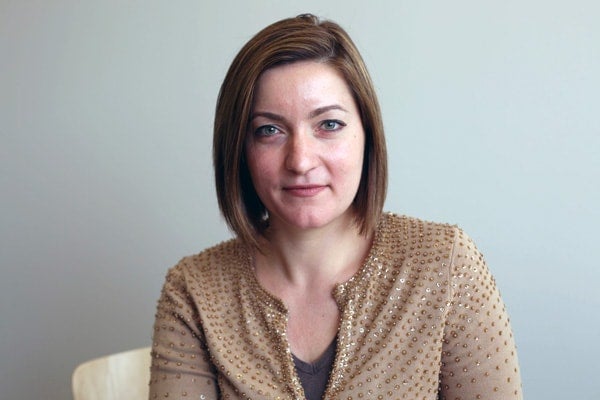
Meet Danielle Martin, the health care leader heard across North America
Published: June 17, 2014
The University of Toronto's Danielle Martin has received a lot of publicity, accolades, and requests to run for office since she challenged American stereotypes about Canadian health care in front of the U.S. Senate in March.
But the Toronto family doctor was already well known as a leading advocate for publicly funded health care before her ideas went viral.
Martin — an assistant professor in U of T’s Department of Family and Community Medicine and the Institute of Health Policy, Management and Evaluation — founded Canadian Doctors for Medicare and served on the Health Council of Canada. She has stood up against privatization of medical services, such as plans (now shelved) to sell Ontario’s Shouldice Hospital to an American investor. And she spends a lot of time thinking about how to make Canada’s health care system sustainable while improving both the health of Canadians and their experience as patients.
“Reaction to my testimony showed just how proud Canadians are of Medicare — but our support is not unconditional,” said Martin, who sees patients in her hospital clinic every week. “We do a terrific job delivering care to the acutely ill, but access to elective care remains a challenge. My life’s work is making universal health care stronger.”
Given her resume, it’s no surprise Martin was invited to testify in front of a Senate committee investigating what the U.S. can learn from other health care systems. When asked by Republican Sen. Richard Burr if she knew how many Canadians die waiting for treatments, her quick-witted response made headlines: “I don’t sir, but I know there are 45,000 in America who die waiting because they don’t have insurance at all.”
Martin’s deftness at rebutting a senator is less surprising considering her background: she came from an activist family, joined the debate team as an undergraduate at McGill University, and worked at Queen’s Park as an assistant to Liberal health critic Gerard Kennedy in the late 1990s.
Now Martin is using her new platform to promote three “big ideas” to improve Canadian health care.
She calls the first one “Twenty Drugs to Save a Nation.”
Martin said Ottawa could afford to provide the top 20 generic drugs to all Canadians for the same funds that now cover only a limited percentage of the population. If a small country such as New Zealand can bargain down the price of atorvastatin, a common anti-cholesterol drug, to just two cents a tablet, she asked, why is the Ontario government paying 31 cents for the same pill? By one estimate, Canadians waste $5.1 billion on overpriced drugs compared to countries with universal pharmaceutical coverage that buy in bulk.
“There’s nothing to stop us from having universal public drug coverage,” she said. “There’s no need for a tax increase, or to add a new layer of bureaucracy. We just need to summon the will to do it.”
Canada is the only developed country with universal insurance that doesn’t cover prescriptions, said Martin — and one in ten Canadians fails to fill a prescription because of concerns over costs.
A taxi driver in Martin’s downtown Toronto practice suffers from diabetes and hypertension, but he struggles to afford his life-saving medications, and regularly skips them.
“He’s a sitting duck for complications that will be devastating for his family and very expensive for the health care system to manage,” she said. “But he can’t afford to buy his medicine, and that’s crazy.”
Secondly, Martin is supporting Choosing Wisely Canada, which is being led by U of T’s Professor Wendy Levinson, the Sir John and Lady Eaton Professor and chair of the Department of Medicine. The physician-led movement is encouraging patients to discuss with their doctors the risks of unnecessary medical tests and other procedures.
Finally, Martin is highlighting how social factors — such as poverty and poor housing conditions — affect health.
“Doing something about poverty, through a guaranteed annual income, for example, is probably the single thing that would make the biggest difference to the health of Canadians,” she said. “One of my patients’ health fell apart when her asthma worsened from poor housing conditions. That woman is not really sick with asthma — she’s sick with poverty. As physicians we see the negative impact of poverty on the health of our patients every day. We should be at the front of the parade to try to reduce poverty in Canada.”



